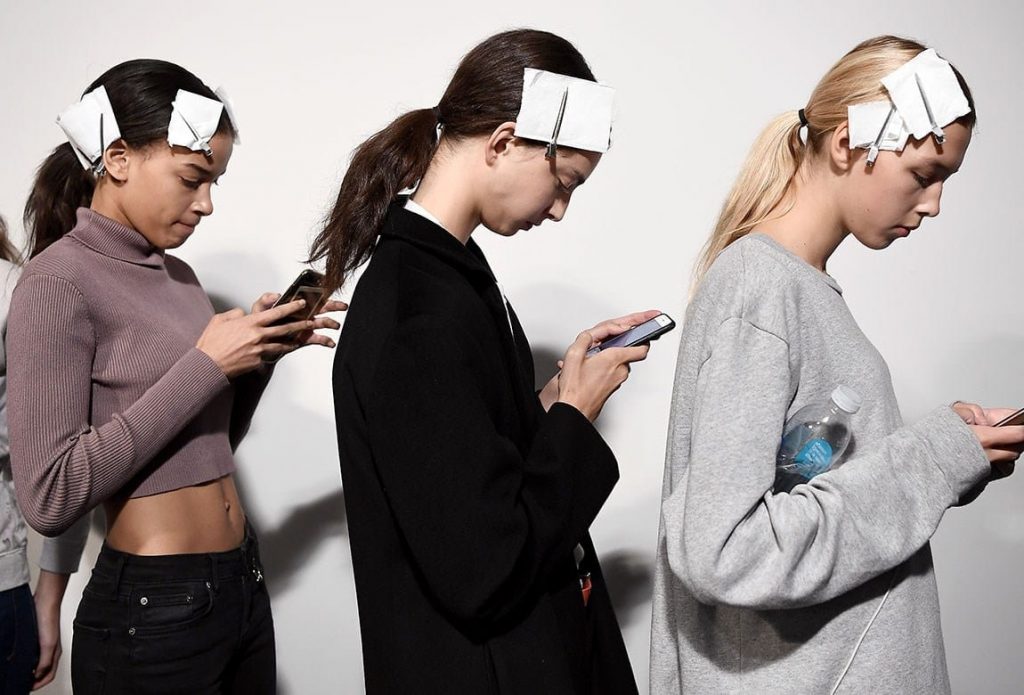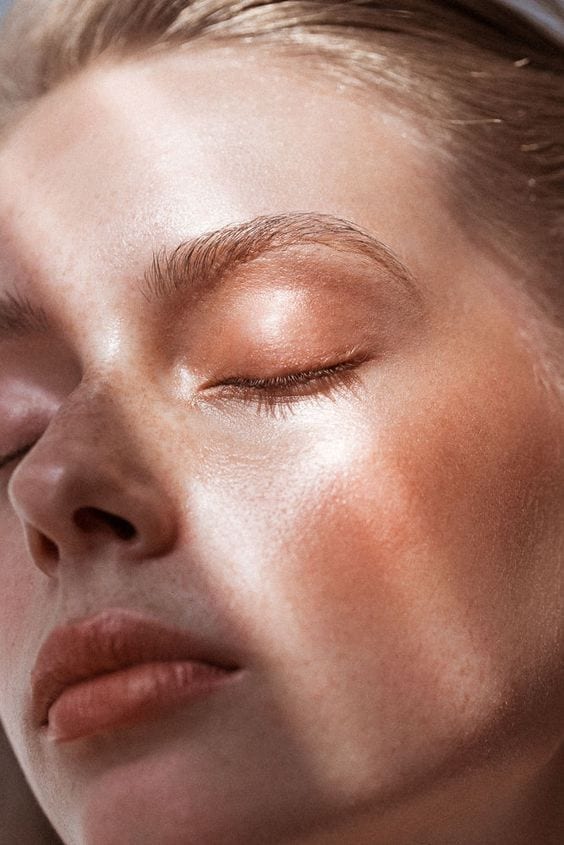It’s no surprise that our screen time has increased during our extended periods of working from home and for some, that is still a reality.
Experts have known about the strain digital devices and blue light can have on our eyes for a while, but can our escalating screen time damage the skin too?
As I began to spend more time on my laptop, working from the dining table, I began to wonder what the real impacts of my workload might be having on my skin. Was I reversing the effects of my morning routine? Or was there something better I could be doing to reduce what could be – irreversible damage?
What is blue light?
Without getting into complicated science, light rays that have relatively long wavelengths contain less energy, and those with short wavelengths have higher energy.
Blue light is a high-energy, short-wavelength visible light, sometimes referred to as HEV. The primary source of blue light we’re exposed to is the sun, and without question can cause severe damage. However, we get a considerable dose from our screens and indoor lighting. The difference is that our devices are significantly closer to us than the sun. The sun’s blue light is diffused and much further away, whereas we are receiving close up exposure from our devices.

How is it damaging the skin?
We are all guilty of spending too much time on our devices, holding them close to our face and eyes too often, and it all adds up.
The research into blue light damage on to skin is small and less conclusive to research on damage to the eyes. The research is ongoing but one small, peer-reviewed study of the effects of blue light on the skin, published in 2010, is still referred to by leading experts nearly a decade on.
The study published in the Journal of Investigative Dermatology found that exposing skin to the amount of blue light we get from the sun caused more pigment and redness than when the same person’s skin was exposed to comparable levels of UV rays.
Another study published in Oxidative Medicine and Cellular Longevity in 2015, showed that exposure to blue light might stimulate the production of free radicals in the skin, which can accelerate the appearance of ageing.
The bottom line is, that although further research is necessary, long term exposure to concentrated sources of blue light energy can cause skin damage – colour changes, inflammation and weakening of the skin’s surface. Blue light promotes stressors in the skin that cause photo-ageing and the breakdown of collagen, which leads to skin laxity and wrinkles.
These effects are always noticeable right away. Just like sun exposure – the damage adds up over time. If you’ve heard your mum telling you to stay out of the sun, and you’ll thank her later – she’s right! It is likely we won’t see the full impact of blue light on the skin for years to come.
As of now it is not commonly understood whether the more time we spend on our screens, the worse off our skin might be – keyword ‘might’ – more research screen’s blue light VS the sun’s blue light needs to be carried out.
How can we reduce the damage?
Although research hasn’t proved that our screen time is linked to skin damage, it is better to be safer than sorry by preventing early on.
Simply put, we should limit screen time. However, this isn’t always possible. There are a range of options to reduce the potential damage to the skin;
Disable Blue Light – On some devices, you can disable blue light in favour of yellow light, often called ‘night mode or ‘night shift’. The yellow light is far easier on the eyes and your skin and can be great for anti-ageing. A bonus – it’s likely to improve your sleep too!
Antioxidants – Antioxidants off your body many health benefits, including protecting your skin from harmful UV and HEV light. While having an antioxidant-rich diet is essential, so is incorporating them into your daily skincare. Look for serums loaded with antioxidants, vitamins and minerals to reduce to look of fine lines and wrinkles.
SPF – Rain or shine, SPF must be in your skincare routine, after moisturiser, before makeup. Using a broad spectrum SPF keeps the skin shielded from the most concentrated portions of UV and blue light. If you start getting in the SPF routine now, come summertime you’ll already be a pro! Below are our picks for daily SPF;
Words: Georgia Rose
Images: Pinterest

